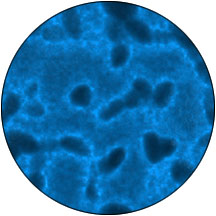Untreated plastic articles can be attacked by microbic growth causing unsightly discoloration, unpleasant odors, and polymer degradation issues.
Antimicrobial additives can be incorporated with plastic resins during compounding or as a masterbatch during molding and provide a biocide treatment to control microbes.
Common microbes antimicrobials can be effective against include

Multiple antimicrobial technologies are available which are compatible with wide variety thermoplastic resins
Silver-based antimicrobials
Silver has been used for centuries as a biosatic agent. When contacted by moisture an electrochemical reaction releases silver ions. These ions penetrate microbes rendering them unable to function, grow, or reproduce.
A wide variety of plastic articles are suitable* for antimicrobial treatment
- Medical devices, FDA 510(k)
- Sports and recreation equipment
- Food processing and handling machinery
- Business machines and consumer appliances
- General household goods
- Textile films & fibers
- Transportation interiors
- Construction supplies
- Any outdoor applications
* In the United States usage and benefit claims are regulated by the EPA or guided by the FDA depending on usage.
Antimicrobial selection
- What is the end-use application and its typical usage environment?
- Do other products of this type already utilize antimicrobial protection?
- Is there a preferred technology for antimicrobial treatment?
- Does the antimicrobial additive need to function in a particular resin?
- Will other additives also be included in the resin?
- What antimicrobial efficacy or other performance requirements need to be met?
- What roll does cost have on antimicrobial technology selection?
Learn more about Antimicrobial Solutions
- INNOVATION BULLETIN: Antimicrobial Compounds
- DATA SHEETS: Antimicrobial Masterbatches
- PRESS RELEASE: Antimicrobial compounds from RTP Company prolong product life




